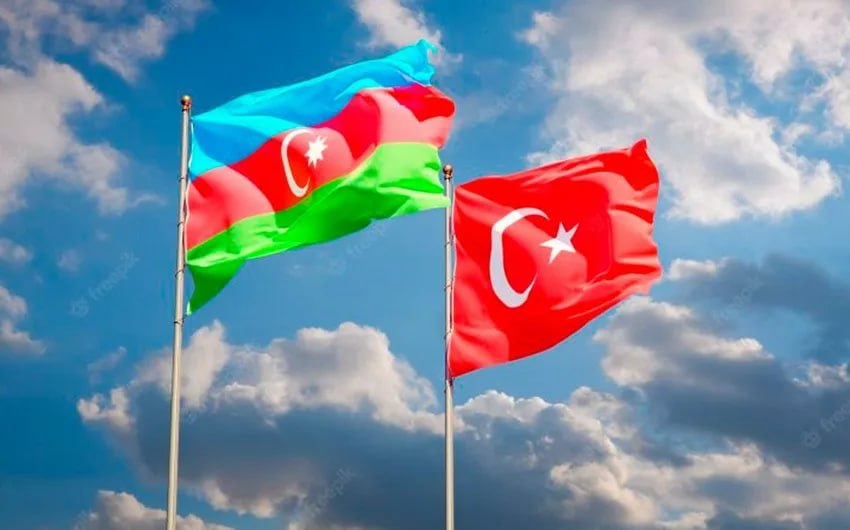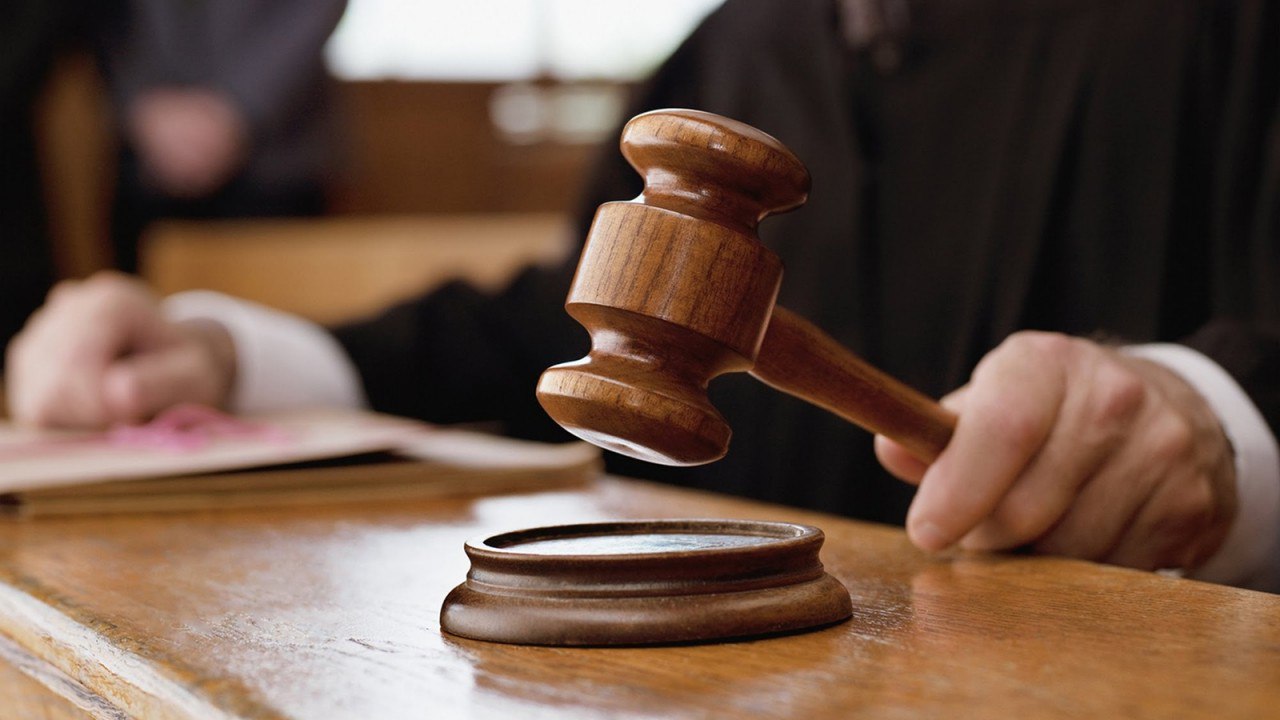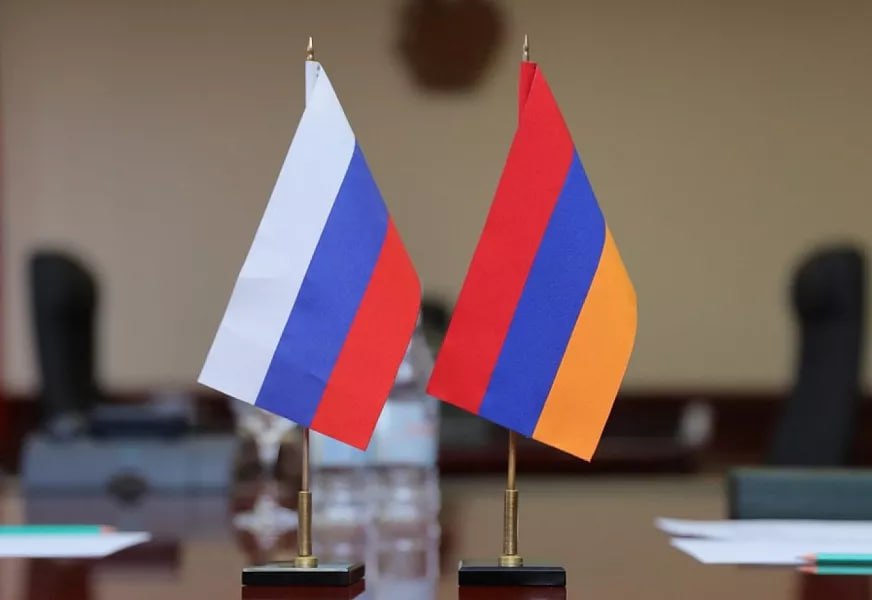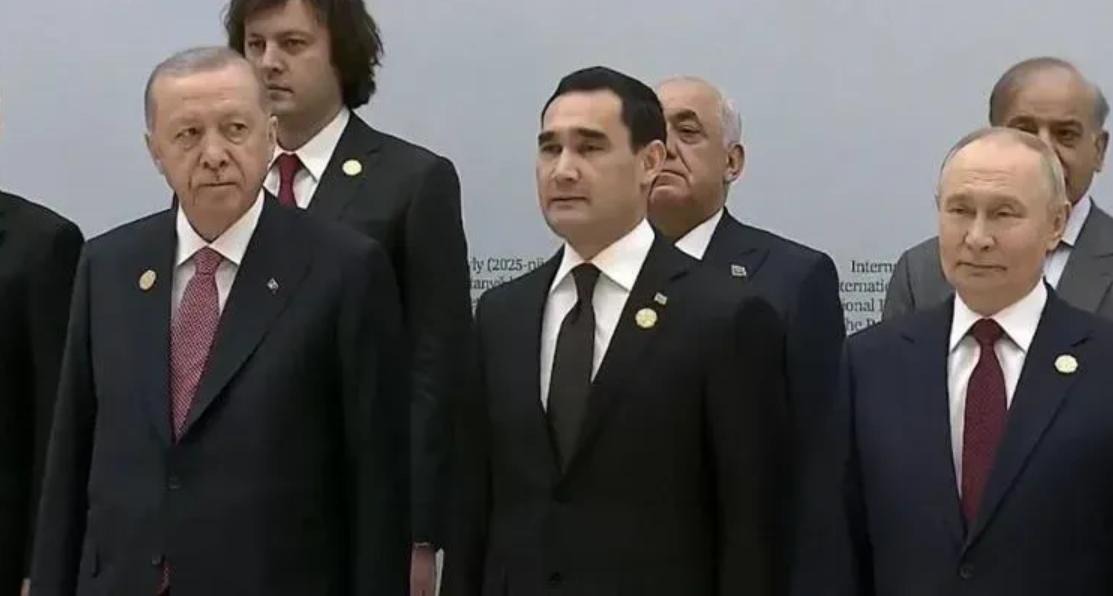Turkey continues to strengthen Azerbaijan's defense capabilities, viewing it as a fraternal state and a key ally in the region. This was stated by Turkish Minister of National Defense Yaşar Güler, who emphasized that cooperation is based on the principle of "one people, two states, one army."

The Chechens of Aukhov responded to their attempt to defend their rights with threats, and the disgruntled residents were eventually deported to Ukraine
The Dagestani authorities launched a massive campaign to mobilize and conscript residents of Leninaul, Kazbekovsky District, Dagestan. This was the authorities' response to their protests against the distribution of land to participants in the war in Ukraine, which historically belonged to Aukhov Chechens and was covered by the Law on the Rehabilitation of Repressed Peoples.

Novy DOSH magazine report:
The Aukhov District, where Chechens had lived compactly before the 1944 deportation, was abolished after Stalin's expulsion. The district's territory was reorganized: part of it became part of the Novolaksky District and was settled by Laks, while the other part became part of the Kazbekovsky District, settled by Avars.
Despite the official rehabilitation of deported peoples, the Aukh Chechens were not allowed to return to their lands. Only in the 1990s was a program for the district's restoration finally developed, but it has still not been fully implemented.
Local activists have repeatedly complained about the stalled restoration of the Aukh district. In March 2024, residents of the village of Gamiyakh in the Novolaksky district demanded a moratorium on the privatization of land within the boundaries of the historic Aukh. And in August, it became known that plans to transfer land in the Kazbekovsky district for housing construction effectively negate the prospects for the district's restoration.

"SVO" members demanded reprisals from Melikov
On November 2, a video appeared on the anonymous Telegram channel "Dagestan Headquarters" featuring several dozen residents of the village of Leninaul in the Kazbekovsky district. Among them are numerous police officers and armed security forces. The video's annotation states that the land surveying event was conducted legally and with notification of all interested parties. However, representatives of the Aukhov Chechens expressed dissatisfaction with the administration's actions and attempted to interfere with the demarcation of the land plots.
On November 3, in a new video, local residents addressed the head of Dagestan, Sergei Melikov, with a complaint about the actions of fellow Aukhov Chechen villagers. A man, on behalf of the participants in the video, stated that they were military personnel participating in the "SVO" and were on leave.
According to them, local Chechens are obstructing the land surveying. In their video message, the villagers demanded that these people be sent to the so-called "SVO" zone in Ukraine.
"We are standing on land allocated for the families of SVO participants. We began surveying in the morning, but representatives of the Chechen people arrived and began removing the stakes used to mark the plots," the message states.
The residents emphasized that, unlike them, the people removing the stakes were not participating in the "SVO."
"If they allow themselves to act like this, they have no business here. Such people should be sent to the SVO, where they can be useful," the video's creators stated.
The villagers also called on the head of the village administration to check the lists of residents and find out why some are not participating in the "military operation."
"When the land plots were distributed, no one was left out. Both the Chechen and Avar peoples received their lands. But some are removing the borders, and no one is reacting," they added.
Send all enemies to the front!
On November 6, 2024, at a meeting of the Kazbekovsky District Conscription Commission, Military Commissar Arsen Magomedov reported an unsatisfactory turnout of conscripts from rural settlements. However, he did not specify which settlements he was referring to. Over the past week, according to him, 9 people were sent to military service.
However, on October 28, during a similar meeting, the commission reported that work was proceeding according to plan and that conscript turnout was satisfactory. The size of the conscript groups sent to Ukraine has not changed since then.
According to local chats, raids in the Kazbekovsky district, triggered by an appeal from "SVO participants to Melikov," are accompanied by security forces checking the young men's documents and, in some cases, forcibly taking them to the military registration and enlistment office. This is causing further tension among residents, fueling mistrust between different ethnic groups.

"Они получили за счет государства земли и дома, которые теперь сдают в аренду"
Land Distribution and New Conflicts
In August 2024, in Leninaul, land certificates were awarded for the first time to widows and parents of fallen participants in the war in Ukraine. However, Arbi Batyrsultanov, chairman of the "Aukh" Public Council, warned that failure to enforce the law and the "squandering" of land could lead to interethnic clashes and illegal actions.
At the same time, raids to search for draft evaders have become more frequent, which, combined with conflicts over land, exacerbates mistrust between ethnic groups. Experts and local activists are convinced that the historical injustice associated with the deportation of Chechens and the harsh administrative measures of today continue to fuel conflicts whose resolution requires a comprehensive and sensitive approach.
Representatives of the Chechen community in Dagestan complain about the inability to obtain a reasonable response from the authorities or engage in dialogue on issues concerning the future of the region and all the Chechens living there.
"Issues of land distribution, appointments, or other aspects of socio-political life in Dagestan are never discussed with Chechens, since we are not represented in the region's government, especially in its repressive system. The situation remains extremely tense," Chechen activist Sultan Kasimov told Novyi Dosh magazine.
In his opinion, the administration of Dagestan's Kazbekovsky District is committed to developing the lands of the Aukh District, despite previously adopted decisions to restore it.
"At the same time, there is no housing shortage in the republic. Land distribution is primarily being carried out among Avars, as they make up two-thirds of the population of these villages. Meanwhile, the rights of many Chechens who historically lived in these areas have still not been restored, although there is no need for a large-scale distribution of their ancestral land. After all, other plots can be found for several dozen SVO members," he said.
The activist sees the fact that local residents are calling on Dagestan authorities to deport Chechens who oppose the distribution of Aukh lands to Ukraine as a continuation of the established repressive practices dating back to the deportation period.
"Although repressive methods against Chechens have become commonplace, it is impossible to call us traitors or deserters, despite the fact that some are making such attempts. "In the past, in 1944, this was one of the reasons for the deportation of our people. However, the situation in the country has changed, and the Chechens themselves would never agree with such accusations. Nevertheless, repression against Chechens remains the norm in Dagestan, and this has long been known to everyone," Kasimov lamented.
No Chechens agree with the distribution of Aukha land, he emphasizes, seeing malicious intent in these attempts.
"The entire Chechen people oppose the distribution of their historical land to uninvited 'legalized tenants.' These actions undermine the rehabilitation of Chechens and put an end to the restoration of the Aukh district. Its restoration is impossible without land—it's not a metropolis where you can get by without land. Those who lived on our land for decades in illegally built houses will not limit themselves to mere complaints. The barbaric era of tolerating such abuses has lasted for 80 years, but it is coming to an end. We will never abandon our homes and our land, because we have no other homeland. Everything depends on the will of the Almighty," concluded Sultan Kasimov.

"The distribution of land in Aukh is aimed at weakening the influence of Chechens."
The issue of land distribution in Aukh is causing significant public outcry and concerns more than just resource division. It also has deeper historical, cultural, and social aspects, so it is especially important to understand its meaning. Ibrahim Akhmedov, a Chechen activist in the "Restoration of Aukh" movement, stated this in a comment to the magazine "Novy DOSH."
"Currently, the distribution of land plots has been suspended due to growing public discontent and political tension. However, there has been no official confirmation that this program has been cancelled. Local Chechens fear that the process may resume if the issue does not attract the necessary attention," he said.
According to him, land in the Aukh district is being allocated to participants in the "SVO," including representatives of various Dagestan peoples, such as Avars, Laks, and others. The aim of this policy is apparently to weaken Chechen influence in the region.
"Aukh was chosen for the distribution of plots due to the availability of vacant land left over from former collective farms, as well as due to a shortage of suitable land in other regions of the republic... However, the choice of Aukh is also linked to political motives, as this territory was historically inhabited by Chechens.
The development of these lands by representatives of other ethnic groups may be a strategic attempt to change the region's demographic profile. This is being done to deprive Chechens of the opportunity to reclaim their lost lands and restore the Aukh district," Akhmedov believes.
Such actions by the authorities, in a situation where the Law on Restoring the Rights of Former Owners of Aukh is not being implemented, could further exacerbate social tensions in the region, the activist notes.
"The Law on the Rehabilitation of Repressed Peoples has still not been implemented: the Aukh district that existed at the time of the eviction has not been recreated, and not all families have had their former homes returned. This remains a significant unresolved issue, which, in turn, only exacerbates the region's existing social and political problems. Thus, the authorities, without resolving old problems, are exacerbating them, fueling further discontent among local residents, especially Chechens, who feel disenfranchised and unfairly deprived of the right to reclaim their lost territories," the activist emphasized.
He said that calls by SVO members on November 2-3 to send critics of the land distribution to the front sparked considerable outrage among local residents. Naturally, the Chechens were particularly indignant.
"Following this, visits and summonses to military recruitment offices began, which many perceived as an attempt to suppress the protest. On November 4, Chechen elders organized a peaceful gathering to protest the land distribution and threats against those who expressed disagreement with the authorities' actions. They emphasized that the historical value of these lands to Chechens must be taken into account when deciding their fate. In response, several elders were summoned by the police for questioning. Although this was formally explained as an investigation into the causes of the "unauthorized gathering," many perceived it as pressure on opinion leaders," Akhmedov shared.
Opponents of the land distribution in Aukha are primarily local Chechens, including deported families, as well as members of the community, he explained. Their main points are as follows: "The land has historically belonged to the Chechen teips, and distributing it without their consent is perceived as injustice. This will increase interethnic tensions in the region. The lack of infrastructure for the new settlers will lead to a deterioration of the socioeconomic situation in Aukha."
According to Akhmedov, "SVO members perceive themselves as an elite deserving special treatment; they have turned their achievements into a tool of pressure. However, their calls to send dissenters to the front as punishment seem paradoxical. While boasting about their prowess, they simultaneously make it clear that their experience is no better than prison, and use this as a means of intimidation.
The events in Aukh, according to the activist, "are only part of a broader problem related to the struggle for resources, historical memory, and interethnic relations."
Akhmedov is convinced that "resolving this conflict requires constructive dialogue between all parties and consideration of the interests of local residents. Only with this approach can a fair and sustainable solution be achieved."
On November 9, Chechen opposition blogger Tumso Abdurakhmanov reported that elders from Leninaul appealed to Ramzan Kadyrov to prevent the distribution of land in the village for development to veterans of the war against Ukraine. These measures "exacerbate the rift in society and do not contribute to overcoming the crisis," the elders' appeal stated. They ask the head of Chechnya to facilitate the implementation of the federal law on the rehabilitation of victims of political repression and the restoration of the Aukh District to its former borders.
"According to the elders, they appealed to all possible officials in Dagestan, but received no support," Abdurakhmanov explained.
At the time of publication, there had still been no response from the authorities of Chechnya and Dagestan to this appeal.
Why does the land distribution in Aukha threaten interethnic peace?
The distribution of land covered by the Law on the Rehabilitation of Repressed Peoples has social consequences and will inevitably lead to new interethnic conflicts, according to human rights activist Usam Baysayev.
"The authorities of the Kazbekovsky District, which includes two Chechen villages, have long and stubbornly refused to implement the 1991 decision of the Congress of People's Deputies of the Dagestan SSR to transfer them to the Aukhov District, which is slated for restoration. Avars from nearby settlements now live in both villages, which makes the conflict particularly acute. "Almost all clashes with Chechens, and there have been quite a few in the past, were initiated by Avars, who received military support from the Kazbekovsky District authorities and residents of neighboring Avar villages," Baysayev stated in a commentary for a publication in the Novy DOSH magazine. In his opinion, "the attempt to distribute Chechen lands to SVO members is a way for the local administration to maintain control over the villages of Leninaul and Kalininaul for the Avars settled there by Stalin."
"This policy contradicts both the Law on the Rehabilitation of Peoples and the decision of Dagestani deputies, which has still not been repealed. In the future, this will become a source of new conflicts, and they are unlikely to resolve themselves if the Kazbekovsky District administration insists on this policy. It certainly does not lead to the establishment of harmonious and respectful relations between the peoples of Dagestan, one of which are the Chechens living there on their lands." "Considering that the Chechens will still not renounce their right to restore the Aukhovsky District, as well as other lands in the plains that fell within the settlement zone of Dagestani mountain peoples who had not previously inhabited the area between the Terek and Sulak rivers after 1921, when the Khasavyurt Okrug was annexed to the Dagestan ASSR, newly created by the Bolsheviks, such land distributions will only intensify the enmity between once fraternal peoples," the activist fears.
Threats of sending people to the "Northern Military District" are an indicator of the "popularity" of the war in the Caucasus.
The very demand to force opponents to fight is nothing more than an attempt to exterminate them, Baysayev emphasizes.
"This proves the wrongness of those who pursue such a base goal; their actions clearly demonstrate that they have long since crossed the line. Humanly speaking, such an undertaking is pure despicable." Why hide their feelings if they demand to be resettled on lands whose rightful owners object? It's like seizing a corner of someone else's apartment, ignoring the owners' pleas to leave, and instead trying to get themselves sent off to a place they're unlikely to return from. The moral bankruptcy of people capable of such things is obvious. Moreover, this demand reveals how the war with Ukraine is truly perceived in the Caucasus. There's no hint of civic patriotism here. If you survive, you can earn money, and then, flaunting your status, demand social benefits. Just like those who supposedly "stopped Basayev" in his "campaigns" in Dagestan in 1999. These people never took part in a single battle, yet they've been walking around with "militia" IDs for decades and once even drank vodka with Putin," the human rights activist reminds.
In his view, the war with Ukraine has become a means of suppressing free thought in the country. He believes that the front lines of this war are "not a place for showing love and loyalty to one's homeland, but a place for reprisals against those who disagree, or for attempts to appropriate the property of those who are too aggressive in defending their own," Baysayev believes.

"The Aukh problem is historical. So is its solution."
The lands of the Aukh district have been inhabited by Chechens since the 16th century, which is confirmed by historical sources, as well as by the fact that there was no Avar population in these territories until 1944, when the Chechens were deported. A Chechen historian, who wished to remain anonymous, told the publication Novy DOSH this.
"After the 1944 deportation, these lands were inhabited by Avars, who had not previously lived there. Even in the cemeteries, you won't find their graves older than 1944. This is a basic fact that must be acknowledged," the historian emphasizes.
He is convinced that acknowledging this fact could significantly ease tensions. However, in his opinion, the key obstacle is that after the deportation of the Chechens, two historically significant villages – Leninaul and Kalininaul (formerly Aktash-Aukh and Yurt-Aukh) – were transferred to the Kazbekovsky District and resettled by Avars.
"For the Chechens, these two villages are ancestral settlements. Attempts to restore the Aukh District without them are rejected, as it does not solve the problem," he explains.
The historian emphasizes that the difficulty of resolving it is exacerbated by the lack of political will and the uncertain position of federal and local authorities.
"Makhachkala is acting like a dog in the manger: it doesn't use these lands itself, but it doesn't give them to others either. If Moscow insisted on a solution, no one would dare object. However, Moscow remains silent, and Chechnya is biding its time," the historian notes.
According to him, this means that the Laks resettled in new areas are uninterested in the return of their territories, as it would deprive them of economic benefits.
"They received land and houses at the state's expense, which they now rent out. For them, this is a kind of manna from heaven," he explains.
At the same time, the historian emphasizes: "No one is demanding that the Avars leave these homes. The Chechens only want to restore justice, and this is impossible without recognizing the historical ownership of these territories."
When asked whether there are successful examples of resolving such conflicts, the specialist (with some reservations) answers in the negative.
"In Russia, such issues remain unresolved. The problems of deported peoples persist in Ingushetia, Kalmykia, Chechnya, and other regions. Examples from other countries, such as the joint administration of Andorra, France, and Spain, or Swedish influence on a Finnish island, are rare and require significant effort and political will."
From a historical perspective, a solution to the problem appears possible only under circumstances that are currently unlikely.
"The issue will not be resolved until Moscow develops political will and until local authorities stop resisting compromise," the expert concluded.
Sharia's Position
In Islam, issues of ownership and use of property, especially in cases of unjust exile and subsequent return of its owners, require a deep understanding of Sharia principles, according to Sheikh Muhammad Saleh al-Munajjid, one of Saudi Arabia's leading Islamic scholars.
"It is unacceptable to seize someone else's property, including land. The Prophet (peace be upon him) sternly warned of the punishment for such actions. Using seized land is sinful, and accepting prayer on it is a matter of scholarly disagreement," al-Munajjid says.
In response to the question of whether Muslims are permitted to occupy the land of other Muslims, the scholar cites a hadith of the Prophet Muhammad, in which he calls "a Muslim's property unlawful [for use by others] without his free will."
"As for land, there is a stern warning for those who seize it unlawfully. Imams Al-Bukhari and Muslim narrated a hadith from Said ibn Zayd, in which the Messenger of Allah (peace be upon him) said: 'Whoever illegally seizes even one inch of land, Allah will burden him with it on the Day of Judgment, out of seven lands.'
Imam Muslim narrated a hadith from Ali: 'Allah has cursed the one who steals the boundaries of the land.'" Al-Munajjid explains that "boundaries of the land" refer to its landmarks and demarcation marks.
The scholar also notes that "it is unacceptable to remain on illegally seized land."
"It is necessary to leave it." Scholars' opinions on praying on such land differ: some consider it invalid, while others admit that it may be valid but still burdened with sin," he concludes.
The conflict in Leninaul demonstrates how the historical injustice associated with the deportation of Chechens and Ingush continues to exacerbate the social situation in the region.
The intensification of mobilization measures and land disputes require a comprehensive approach, including transparency in administrative decisions, dialogue between ethnic groups, and consideration of their interests.
Thus, the restoration of the Aukhovsky District and land distribution remain one of the most pressing issues, requiring the attention of both local authorities and Moscow. However, neither side has shown any interest in a fair resolution to this conflict. Or perhaps they simply don't want one?




